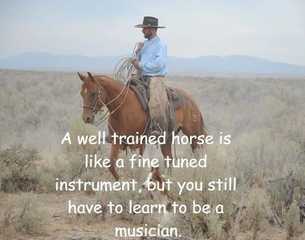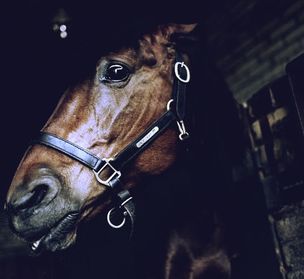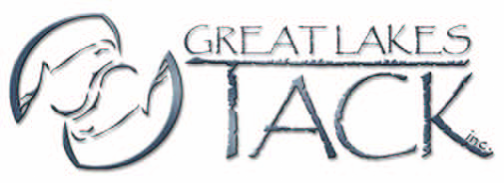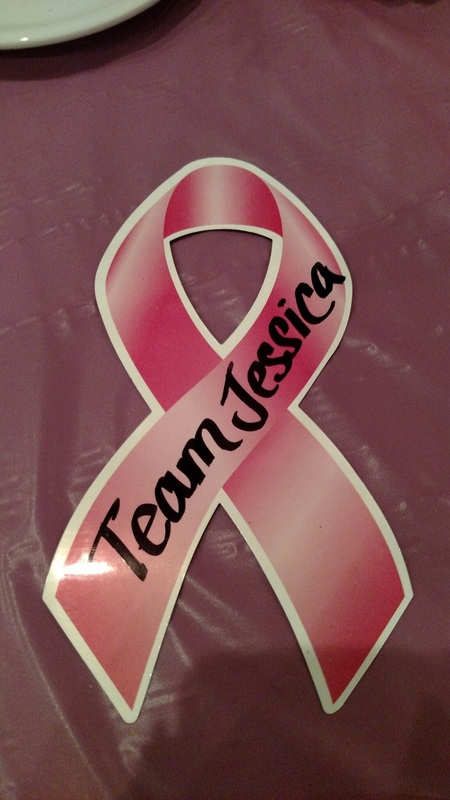 Anyone who has ridden a horse learns that there is a language that the horse and rider must share in order to communicate. In a beginner or casual rider it is a simple language, consisting of the rider's heels, hands and voice. Simple cues are learned such as "whoa" and pulling back on the reins means stop and a kick or cluck means go. As riders advance, so does the communication between horse and rider. At least it should. This communication is delicate and often intricate. On the surface most people would not perceive the subtleties. For instance, the difference in a rider's leg position when executing a turn on the forehand v. a turn on the haunches. Or the slight tip of the spine and pelvis of a half halt. In my horses, I try to keep the vocabulary simple. We maintain a fairly consistent set of words, clucks and cues that any new person can learn. However, even that comes with slight variations given that people are all slightly different. My voice and body structure, even if very similar to another person, are inherently unique to me. My tongue 'cluck' can sound vastly different from another person's; therefore, we start to introduce dialects to our equine partners. When I execute a canter cue, although it is through squeezing my outside heel into the horse just behind the girth and either the word "canter" or this along with a long kissing sound, will undoubtedly 'feel' and 'sound' different to the horse when executed by someone different - albeit similar. Consider the fact the physiologically speaking no one has the exact same build and muscle makeup as I do. This alone could place the rider's heel in a vastly different position when asking with the leg cue alone. When introducing a new rider, the individual and then combination of cues becomes not only new for the rider, but also the horse. Therefore, both are learning this new language and dialect. Only when the pair has success do they begin to understand each other. After all, it is not like either the horse or the rider can ask Google to translate. It is no wonder so many people who buy a horse feel like the horse is misbehaving or like they got taken somehow when the horse behaved perfectly at the sellers place, but after a few rides suddenly stops performing. When in reality the horse and rider are speaking different languages. Too many people don't take the time to understand what language their new partner knows and expect him/her to understand their language and dialect without any sort of translation! It takes time to learn and understand a new language and sometimes even a different accent. Consider also that if you learned a language when you were younger, but never used that language regularly, how much of it would you retain? Riders will unwittingly retrain their horses and wonder why the horse won't do what they are asking? In reality, if we assume the horse knows a cue for the request, it is likely the rider is asking in a different language than what he speaks. A rider should not punish a horse for not speaking their language, no more than a parent would punish a child who reaches for a burner and does not understand what "hot" means! So we must ask ourselves, "How do I learn to communicate with my horse in his language first?" It is only when we understand the basics of the horse's language that we can then teach the horse to translate that into ours. Nelly Cooper has a wonderful blog and book about this topic and many top trainers provide blogs, books and YouTube videos which can help riders improve their ability to communicate with their horses. Another good expert to watch is Warwick Schiller
1 Comment
 I recently was surfing the net to see if anyone else had come up with some suggestions for their grumpy, girthy horses. I came across this excellent article Top 3 Reasons your horse is girthy and what to do ... and wanted to share. Below is an excerpt... Here are the top three reasons horses develop girthiness. With the help of your vet and a knowledgeable trainer, you can use the process of elimination to determine which issue is causing your horse to be girthy – the first step in fixing it. 1. Your Horse May Be Girthy Because His Tack Doesn’t Fit
...The hindgut in particular is massive, filling up the greater portion of the belly. It extends the length of your horse’s underside all the way up into the girth area. 3. Girthiness Caused By A Previous Trauma Horses have long memories, especially when there is pain involved. If you horse was mishandled or experienced an injury at any point in his life, his adverse reaction to the girth may be an ongoing result. Here are some types of trauma that may be causing your horse to act girthy.
I also realized, we have a few good tricks of our own to add:
 Halloween is coming fast - and with it lots of treats! We know you love to treat your horses so do we! So in honor of more treats - less tricks - or maybe more treats in exchange for your horse learning some new tricks here is our top 10 Treat Favorites (for the horses) : 1. Starlight Peppermints 2. Apples 3. Carrots 4. Orange Pop 5. Applesauce 6. Cracklin Oat Bran Cereal 7. Dumors 8. Nickerbits 9. Warm Bran Mash 10. Sugar Cubes Is it safe to feed? Here is a fairly comprehensive list borrowed from www.myhorse.com of some dos and don'ts when it comes to treats: Horse owners often ask equine nutritionist Dr. Juliet Getty about the safety of offering common—and sometimes not so common—foods as treats. Carrots have naturally come up in discussion, but also French fries, garlic bread, and even chocolate. What’s safe and what’s not, and under what circumstances, may surprise anyone who has ever extended a chunk of apple to an eager horse. Dr. Getty points out that some treats are generally safe, some treats are sometimes safe, and some are never, ever good for horses. As she points out, “Horses trust humans for their care. Choose wisely.” Safe to feed, generally:
Chocolate. Like dogs, horses are sensitive to the toxic chemical theobromine found in chocolate. Milk and milk products: Do not feed ice cream, cheese, and even yogurt. Grown horses are lactose intolerant. As Dr. Getty cautions, “Your horse will get diarrhea, and,” she adds with a twinkle, “he will not like you.” Other potentially toxic fruits and vegetables include:
For Horses with Sugar Issues, Avoid these:
When it's Nationals Time - Where are you and your horse headed? No matter where your travels take you and your horse - We wish you all the success! Ride well and safely. When we are headed to Tulsa, OK each year for the US Arabian Nationals we couldn't be more excited to see our friends from across the country and not to mention all the great Horses and classes. What's your favorite? Here is a list of the 12 National championships or World shows just in the USA: 1. US Arabian Nationals 2. All American Quarter Horse Congress 3. Morgan Horse Grand National World Championship 4. Appaloosa National Show and World Championship 5. Washington International Horse Show 6. Pinto World Show 7. AQHA World Show 8. Tennessee Walking Horse World Championship & National Celebration 9. National Academy Championship Horse Show 10. Kentucky State Fair - World Championship Horse Show 11. UPHA American Royal National Championship Horse Show 12. USEF U25 Show Jumping National Championship Best of Luck to all exhibitors - remember you never LOSE, You either WIN or LEARN ! it seems nowadays nearly everyone has been touched in some way by breast cancer. Having lost my mother to this obnoxious disease in 1993, and recently one of my best friends was diagnosed just after her 50th birthday party - compelled me to write this simple reminder that all women should regularly be checked.
If you have a history in your family talk to your doctor now about what your options are for screening - don't wait. I personally went through the genetic screening to determine my probability of ending up with breast cancer. For me it didn't indicate much more than what I already knew before the screening: I am at a higher risk because I have direct family members (mother & maternal grandmother) who have had the disease. Screening is a very personal choice, but screening and finding something early could make all the difference for your long-term survival. Cancer has a stealth way of taking over your life. You don't know it's there unless you detect it through proper screening. I was very thankful that my mom found her cancer the first time early on. She received treatment and was cancer free for an entire year - I cherish the extra year we had with her. Although my friend is still battling, her prognosis is good. She had surgery last week and the surgeon's feel confident that they have removed what they can and possibly even all of her disease. Please do more than just think Pink - do something, get screened, get the facts. Check out these factoids by Cowgirls United by Pink : https://www.pinterest.com/pin/291115563385366549/ Visit my friends at Lope for Hope - https://www.pinterest.com/lopeforhope/ I've been a trainer and an instructor, taken instruction from some of the finest professionals the horse industry has, qualified and shown at the National levels and spent many a late hour observing other trainers working their horses. The thing that continues to amaze me is that there are so many different methods, as many as there are trainers themselves, and gadgets or attachments designed by lots of very clever humans, and those things seem to work for at least some of the people who use them - and I have been those people. Yet this week, after 40+ years, it finally dawns on me..I mean really hits me: You don't need fancy training techniques or attachments, special halters or leads -sure those tools can be used and may provide some assistance to get the job done - but what it really boils down to good ole' common HORSE sense.
Horses are herd animals with a natural order. There is a leader and then there are followers. We know this as the Alpha Male or Alpha Female. Other pack or herd animals have similar hierarchies. These hierarchies are designed by nature to keep the herd or pack safe and establish a natural chain of command to help maintain organization and clear lines of communication. In the unnatural world that we have created for our horses, perhaps we forget how powerful these lines of communication are and that we fit into this natural order just like the rest of the 'herd'. We have all seen what happens to the horses at the bottom of the pecking order, and we certainly have observed the Alpha behaviors in the herd leaders. But have we really determined where each of us fit in our horse's chain of command? Until we become the leader, there is a kink in the chain and the ambiguity of communication manifests in all sorts of 'behavioral' problems or 'poor bloodlines', and other excuses we as riders and trainers come up with to explain our horse issues or our lack of patience. In a recent lesson with author and trainer, Nelly Cooper, who wrote a book called The Alpha Equestrian Challenge, I was not only impressed with the simplicity of her method, but the immediate effectiveness of her common horse sense approach. I would strongly recommend picking up Nelly's book - it gives the reader some very practical advise on working with your horse. Simple little things can make all the difference. So here is to simplicity! |
AuthorWe are passionate horse people with a strong desire to create a fun atmosphere for our customers. Visit our How to Save Blog for more great articles Archives
September 2018
Categories |
Pickups can be arranged at: Sunny Ridge Stables - 889 19 Mile Rd., Cedar Springs, MI 49319
Please contact us for appointments or store hours. Text preferred.
616-215-0915
ALL RIGHTS RESERVED
Please contact us for appointments or store hours. Text preferred.
616-215-0915
ALL RIGHTS RESERVED
|
Policies and Official Information
Contact Us
Consignment Forms Size Charts Measurements Shipping Information International Help Financing Options Payment Options Returns & Exchanges Order information |
About Great Lakes Tack
Our Story
100% Guarantee Visit our App: HorseTraxx Frequent Buyer Program Sponsorships Privacy & Security Terms Of Use |
Helpful Information
_More Ways to Shop
Gift Certificates Retail Store Customer Reviews Wholesale Awards Find a Wish List Site Map Download Order Form |
Our Suppliers and Brands
|
JPC Equestrian
Smith-Worthington |
Copyright 2014 - GREAT LAKES TACK, LLC.
Proudly powered by Weebly


 RSS Feed
RSS Feed